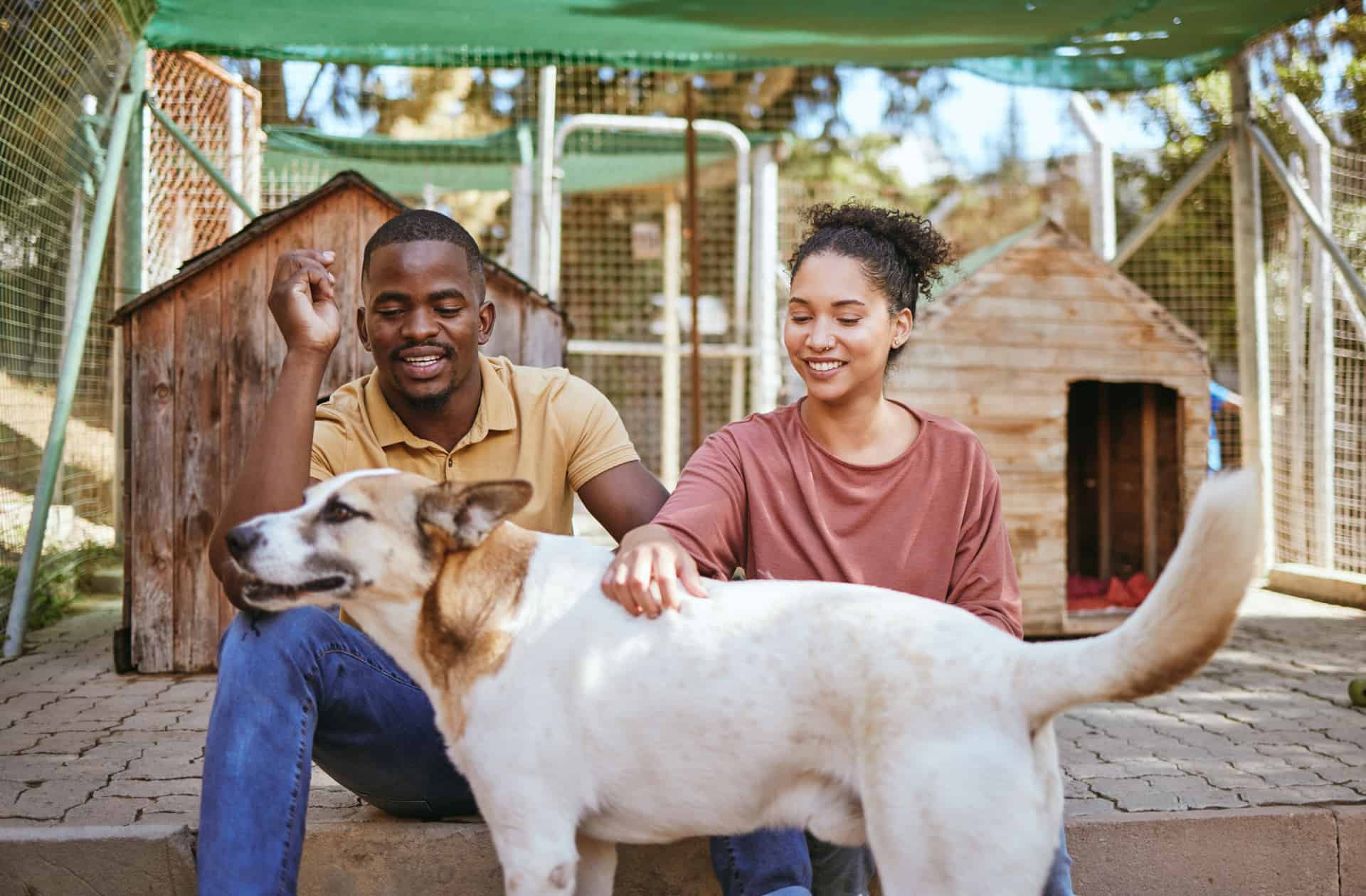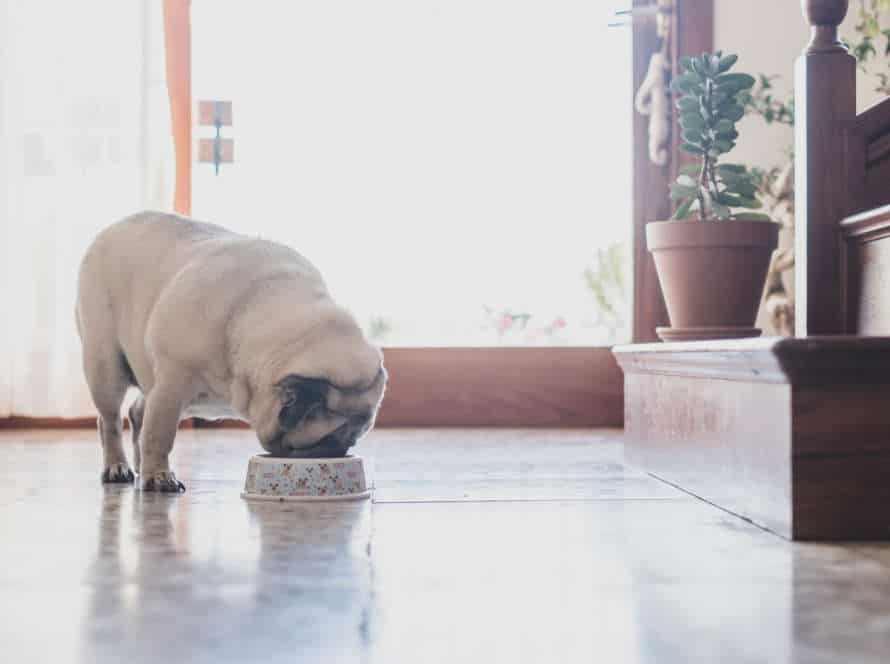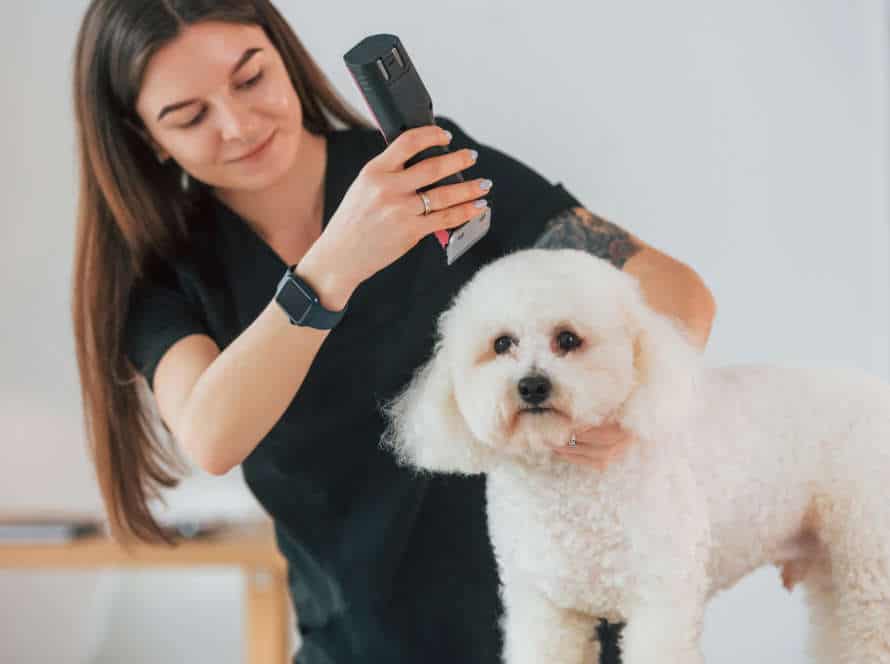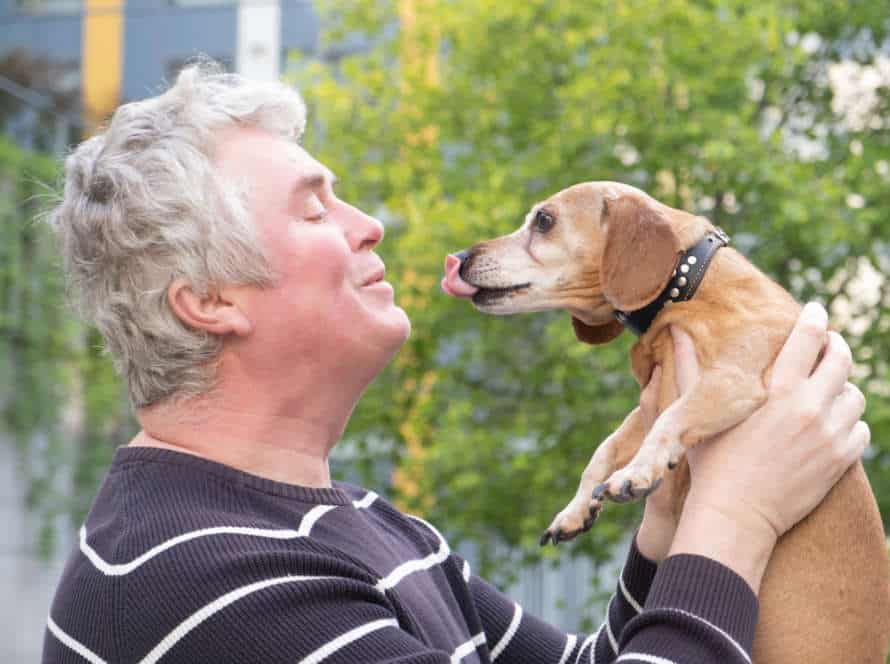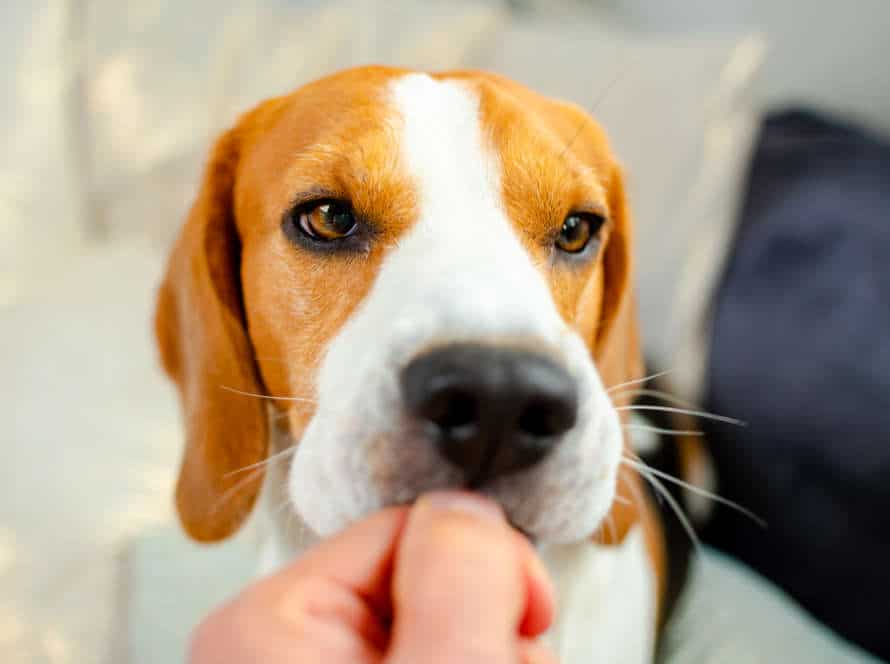Understanding Trust Issues in Rescued Dogs
When you rescue a pup, it can be tricky for them to trust humans or their new home. Trust issues can appear as aggression, barking, or not wanting to socialize. To help your dog, it’s key to understand why they don’t trust. That way, you can help them conquer their fears.
Causes of Trust Issues in Rescued Dogs
Trust issues in rescued dogs? It can stem from various causes.
Like lack of socialization, trauma, or fear.
Here are some common ones:
- Neglect, abuse, or violence in the past.
- Not enough socialization as a puppy.
- Not exposed to new environments/people.
- Genes causing it.
Helping your rescued dog? Patience and consistency are needed. Plus positive reinforcement techniques.
Create a safe and comfortable space, then establish a routine.
Introduce your dog to new people and places.
Reward good behavior with praise and treats.
In severe cases, a certified dog trainer or behaviorist can help.
Remember, building trust takes time. But with love and understanding, your rescued dog can have a happy life!
Recognizing Signs of Trust Issues in Rescued Dogs
Are you worried your rescued dog has trust issues? It is vital to recognize the signs. Common ones include:
- Fear- trembling, cowering, hiding, or avoiding.
- Aggression- growling, biting, or snapping.
- Destructive behavior- chewing, tearing, or digging.
- Avoidance- no contact or eye contact, and hiding in small places.
To help your pup, create a calm and predictable environment with a routine. Give positive reinforcement like treats and praise. Introduce them to new people, places, and experiences in a safe way. A professional dog trainer or behaviorist can offer guidance. With patience, love, and understanding, your dog can learn to trust again and enjoy life.
Importance of Addressing Trust Issues in Rescued Dogs
Adressing trust problems in rescued dogs is critical for their health and fitting in their new homes. Trust issues can come from past suffering or just not getting enough socializing. This can lead to aggression, anxiety, and bad behaviour. Here are several ideas to aid your rescued dog beat trust issues:
- Create a relaxed and quiet space for your pup – this might involve crate training or special quiet spots
- Be patient and consistent with training and schedules
- Give positive encouragement and prizes for good behaviour
- Get the help of a professional coach or behaviourist if needed.
By confronting trust issues in rescued dogs, you can help them build self-assurance and trust in their new environment and boost their quality of life.
Helping Rescued Dogs Overcome Trust Issues
Adopting a rescue pup can be rewarding. But, helping it to trust again can be tricky. It is essential to understand the psychological effects of rescuing a pup and what is necessary to form a bond. In this article, we will look at the various ways to help your rescued pooch learn to trust again.
Building Trust and Bonding with Your Rescued Dog
Building trust and bonding with your rescued pup is key to helping them feel secure. Here are some tips to do just that:
- Patience is key! Allow time for your pup to adjust, and provide them with space they need.
- Show them love! Pet them, talk to them, and spend quality time together.
- Positive reinforcement: Give them treats, toys, and praise when they do something good. This’ll help your pup associate you with happy memories.
- Training: Training your rescued pup can help build trust between you two, and teach them important skills.
With patience, love, and training, you can create a strong bond and trust with your pup. Help them overcome their trust issues and enjoy a happy life with you!
Positive Reinforcement Techniques for Training Rescued Dogs
Positive reinforcement techniques are a great way to train rescued dogs. And help them overcome trust issues.
Here are some techniques:
- Treat training – use healthy treats to reward good behavior. This builds a positive link between good behavior and rewards.
- Clicker training – use a clicker sound to signal good behavior, followed by a reward.
- Playtime – Play with your rescued dog as much as possible. This builds a bond and helps with trust issues.
- Socialization – Socialize with other dogs and people. This builds confidence and trust.
- Patience – Be patient. Building trust takes time. Give love, support and positive reinforcement.
Pro tip: Understand body language. Respect boundaries. Never use physical punishment. This can worsen trust issues and make training harder.
Seeking Professional Help for Rescued Dogs with Severe Trust Issues
Rescuing a pup with trust troubles can be tricky. But, seeking help from a pro can make it easier! Here are some of the benefits professional help can bring to a rescued dog with trust issues:
- Behavioral Assessment: A certified dog behaviorist can analyze your pup’s behavior to spot the source of its trust issues and make a custom plan to tackle them.
- Positive Reinforcement Training: A dog trainer can use positive reinforcement methods to teach your doggo new behaviors and help it learn to trust its surroundings.
- Medication: A vet can give your pup medication, like anti-anxiety drugs, to help it manage its stress and anxiety.
- Support: Professional help can give you and your pup a safe, supportive environment to face their trust issues and work towards a brighter future together.
Pro Tip: Building trust takes time and patience. Every pup’s journey is unique. Stay positive, reward good behavior, and stay on the plan to see progress!
Creating a Safe Environment for Rescued Dogs
A rescued dog may struggle to trust its new surroundings and humans. To make the transition easier, you can create a safe, comfortable atmosphere. This includes:
- Setting up a routine
- Making the pup feel secure
- Providing entertainment
Let’s look into these tricks further!
Understanding the Importance of Physical Environment
Creating a secure physical space is essential to help your rescued pup overcome trust issues. Dogs that have been through traumatic experiences may be scared of new people, places, and experiences.
Here are a few tips to create a safe atmosphere for your pup:
- Provide a cozy, peaceful spot for your pup to relax and feel secure.
- Use a crate or other confinement tools for the first few weeks to stop your pup from wandering around the house unsupervised.
- Ensure the environment is free from any potential hazards, such as exposed wires, sharp objects, or toxic chemicals.
- Think about buying a special collar or tag with your contact details in case your pup gets lost or runs away.
- Give your pup lots of positive reinforcement and approval for good behavior, such as following orders or engaging with new people or surroundings.
With patience and a safe physical environment, you can help your rescued pup overcome trust issues and create a strong bond with you and others.
Reducing Environmental Triggers for Trust Issues
To create a secure setting for rescued dogs, it’s essential to lessen environmental triggers of trust issues. Eliminating potential stressors will help your dog conquer trust issues and build a strong relationship with you.
These are the steps you should take:
- Recognize triggers which make your dog anxious, like loud noises, unfamiliar animals/people and abrupt movements.
- Make a peaceful space for your dog, such as a room or a crate, where they feel safe.
- Don’t give your dog too much new stuff or challenges, but rather, slowly introduce them to new situations and people.
- Utilize positive reinforcement techniques, such as treats and praise, to reward good behavior and build trust with your dog.
By making sure your rescued dog is in a safe and secure environment, you can help them overcome trust issues and create a strong bond.
Providing Emotional Support and Comfort for Rescued Dogs
Offering emotional aid and comfort to rescued pups is key to helping them build trust and create a secure place for them to grow. Here are some tips:
- Set up a routine for your pup that includes regular feeding, exercise, and playtime. This will help them feel comfy and safe in their new home!
- Provide a spot for your pup to retreat to when they’re feeling overwhelmed. This could be a crate, a bed, or a corner of the room.
- Use positive reinforcement techniques like treats, praise, and play to boost your pup’s trust and confidence.
- Be patient and consistent with your pup. It might take time for them to fully trust you, and there might be bumps in the road.
By using these tips and providing emotional aid and comfort to your rescued pup, you can help them gain trust and create a safe and happy home.
Establishing a Routine for Rescued Dogs
Rescued dogs have trust issues, making it hard to adjust in a new home. Establishing a routine is the key to help your pup overcome these trust issues. Routine offers structure and consistency which strengthens the bond between you both. It also helps your pet feel secure and builds trust.
Let’s talk about the ways to establish a routine for a rescued dog:
Importance of Routine for Trust Building in Rescued Dogs
Developing a plan is essential for generating faith in rescued doggies, particularly those who have gone through shock or ill-treatment previously. An expected plan can give a feeling of security and sturdiness for these pups, aiding them overcome trust difficulties and become more content in their new home.
Here are some ideas for forming a plan for your rescued pup:
- Make a steady timetable for chow, strolling, and playtime.
- Create a specific area for your doggy to sleep and relax.
- Utilize positive encouragement techniques to honor good behavior.
- Let your pup time to adjust to their new environment and avoid overwhelming them with too many fresh activities at once.
- Be patient and understanding, and remember that building trust needs time and reliability.
Creating an Ideal Routine for Rescued Dogs
Having a steady routine is super important if you want to help your adopted pup with trust issues and feel secure in their new home. Your pup has probably seen a lot of changes and uncertainty in their life, so having a predictable routine can give them a sense of stability and aid them to settle into their new environment. Here’s what to do:
- Have regular mealtimes and always stick to them.
- Have an everyday exercise plan which includes walking, playing, and mental stimulation.
- Put some chill time into your routine such as snuggling or napping together.
- Be consistent with training and make it part of the routine.
- Have set bedtime and wake times.
By providing a reliable routine, you will help your adopted pup feel safe and secure, build their trust in you, and get used to their new life. Pro tip: Don’t forget to shower them with love, patience, and positive reinforcement as they become accustomed to the new routine.
Sticking to a Consistent Schedule for Rescued Dogs
Sticking to a routine is essential for rescued pups, to gain trust and boost their confidence. Here’s how:
- Consistency is the trick – always feed, exercise and play at the same times.
- Set aside a secure space – designate an area or room for them to feel safe.
- Positive reinforcement – use treats, compliments and play to encourage good behaviour.
- Socialize – let them meet new people, pets and places, but start off with brief, watched meetings.
- Patience – rescuing takes time, and it may take a while for them to feel at home. With patience, dedication and positive reinforcement, your rescued pup will be thriving in their new environment.
Managing Rescued Dogs with Trust Issues
Thinkin’ of rescuin’ a pup? Worried about trust issues? When it comes to dogs with trust issues, givin’ them a safe place, and loads of patience and love is key. Here’s some tips on helpin’ your rescue pup overcome their trust issues:
Preparing for Potential Setbacks or Issues
Adopting a rescued pup with trust issues? Prepare for bumps in the road and build a safe, supportive environment. Here’s how:
- Have patience and expectations that make sense.
- Make a predictable routine to build trust and security.
- Positive reinforcement and reward-based training are musts.
- Steer clear of situations that could create fear or anxiety.
- If truly needed, seek help from a certified dog behaviorist.
Patience and consistency will build a loving relationship with your furry friend. Trust takes time – but you can make it happen!
Managing Anxiety and Stress in Rescued Dogs
Rescued pooches can come with trust troubles due to the bad experiences they’ve had. Here are some tips to help manage anxiety and stress in these pups, so they can get over their trust issues:
- Create a peaceful space. Give your dog a cozy, calm spot free from any noisy surprises or sudden movements.
- Reward good behavior. Give your pup a treat for doing something good, like taking a treat from your hand, or coming when called.
- Go slow. Let your pup come to you on their own terms, and at their own speed. Pushing them may cause more worries and ruin your progress.
- Playtime. Toys and puzzles can help your pup focus, and give them a sense of control in their environment.
- Professional help. If your dog’s anxieties and trust problems are serious, seek help from a certified trainer or behaviorist.
With these techniques, you can help your rescued pup overcome their trust issues and create a strong connection.
Ensuring Long-term Success for Rescued Dogs with Trust Issues
Rescued dogs with trust troubles can be tricky. But, there are ways to ensure their long-term joy and help them overcome their trust issues.
Firstly, give them space and a calm environment to feel safe. Having a regular routine with regular meals, exercise, and play can help establish trust and create a sense of predictability.
Secondly, use positive reinforcement. Reward them with treats, toys, and compliments for desirable actions like making eye contact or meeting new people or situations.
Thirdly, train them with basic commands. This will help them understand and follow instructions. Patience and hard work are key as it takes time to trust and build a relationship with a rescued pup.
Lastly, find professional help from a certified trainer or behaviourist who can work on specific problems and give advice on long-term management.
Remember, a rescued pup with trust issues can be a happy, healthy, and loving companion with the right care and attention.
Frequently Asked Questions
1. What are some signs that my rescued dog has trust issues?
A: Some signs may include avoiding eye contact, hiding or running away, cowering, excessive barking or growling, and reluctance to approach or interact with people or other animals.
2. How can I help my rescued dog overcome trust issues?
A: Building trust takes time and patience. It’s important to provide a safe and consistent environment, establish a routine, and use positive reinforcement techniques for good behavior. Consider working with a professional trainer or behaviorist to develop a customized plan for your dog.
3. How long does it take for a rescued dog to overcome trust issues?
A: There is no set timeline as each dog is unique. However, with patience, consistency, and the right training, progress can be made. It’s important to celebrate small victories along the way and not rush the process.
4. Can trust issues in rescued dogs be fully resolved?
A: While complete resolution may not be possible, trust can certainly be built over time. Some dogs may always have certain triggers or anxieties, but with proper training and management, they can learn to cope and thrive in their environment.
5. Is socialization important for a rescued dog with trust issues?
A: Yes, socialization is important for all dogs, especially ones with trust issues. Slowly introducing new people, animals, and environments can help build confidence and reduce anxiety. It’s important to go at your dog’s pace and not force them into uncomfortable situations.
6. Are there any products or supplements that can help a rescued dog with trust issues?
A: While there are some products and supplements that may help reduce anxiety in dogs, it’s important to consult with a veterinarian before using them. In some cases, medication may be recommended to assist with training and management.

